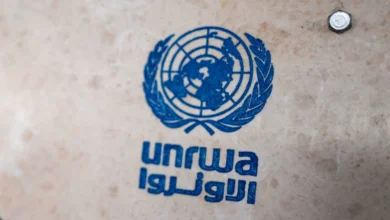
The Egyptian Organization for Human Rights (EOHR) NGO said that the unlimited extension of the remand period is an assault on the guarantees and rights of the suspect as stipulated by international treaties and covenants signed by the Egyptian government, that stress the necessity of restricting pre-trial detention as a precautionary measure to ensure the integrity of the investigation and the course of justice. The extention of the remand period may not be resorted to except in cases of necessity and in accordance with the standards and regulations specified by the law.
In a statement issued yesterday, EOHR called for alternative measures for remand custody to be taken in accordance with the Constitution, and human rights declarations, stressing the fact that the suspect is innocent until proven guilty in a fair trial and in normal circumstances.
The statement cited the Constitution, which affirms that personal freedom is a natural and inviolable right.
EOHR gave examples of these measures, such as for a suspect not to depart his residence except in accordance with the conditions and reasons determined by the investigating judge; limiting the residence of a suspect to a specific geographic area and informing the investigating judge of any other movements; attendance on a daily basis to the police department located in his district; preventing the suspect from traveling outside the country until the court case and the release order of the accused in the misdemeanor materials match; providing a financial guarantee in the case until the verdict is issued; releasing the suspects on bail in cases of misdemeanors taking into account the financial situation of the suspect.
Hafez Abu Seada, President of EOHR, said in the statement that Egyptian-American activist Aya Hegazy and others were remanded into custody for about 3 years since May 2014.
Hegazy was acquitted by the Cairo Criminal Court on Sunday, as well as all other defendants in the Belady Foundation for Street Children case, following nearly three years in pre-trial detention over charges related to the exploitation and abuse of children.
"The Constitution stipulates a compensation for all those whose personal freedom has been assaulted; so the defendants should be compensated in the case in accordance with the Constitution, which spoke to this issue directly," Abu Seada said.
He asserted that the remand is in effect robbing a person’s freedom, who is accused of a crime, for the duration of time until the investigation is completed. Originally, being held in custody is considered a punishment, therefore it should only be ordained by a court order after a fair trial, where the defendant is guaranteed the right to defend him- or herself.
The law allows the primary investigator in the investigation to remand suspect into custody as an exceptional proceedure, as soon as the investigation begins or while it is in progress; however, this is an extremely dangerous procedure that must be surrounded by substantial guarantees, Abu Seada said.
He added that the remand custody period of remand should not be unlimited, because this is considered a violation to the guarantees sought by the international covenants on human rights already signed by the Egyptian government.




